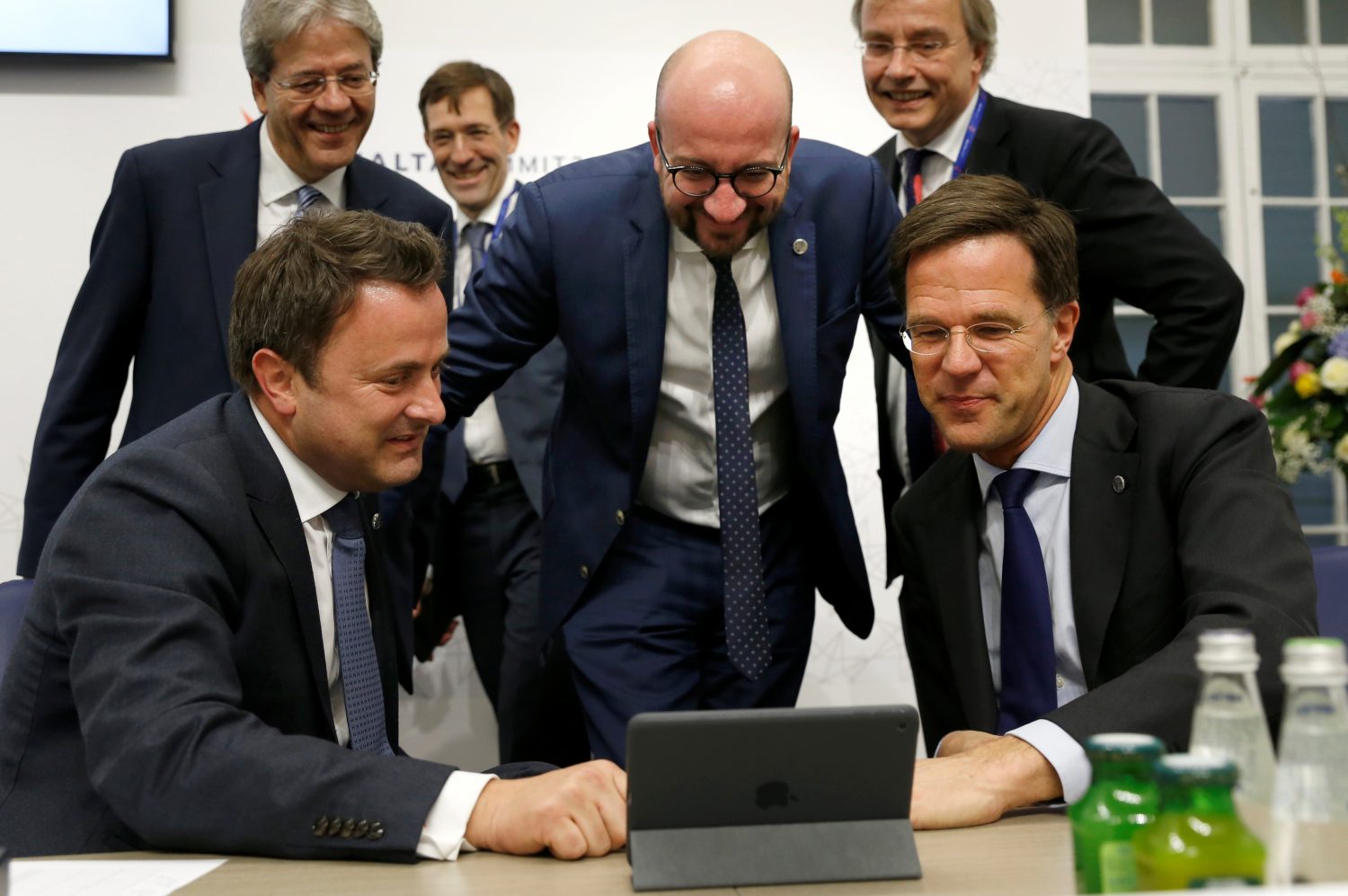
By Jeff Mason and David Lawder
WASHINGTON (Reuters) – U.S. President Donald Trump said on Thursday the United States and China were close to a trade deal that could be announced within four weeks, while warning Beijing that it would be difficult to allow trade to continue without a pact.
The two countries are engaged in intense negotiations to end a months-long trade war that has rattled global markets, but hopes of a resolution soared after both sides expressed optimism following talks in Beijing last week.
Speaking to reporters at the White House at the start of a meeting with Chinese Vice Premier Liu He, Trump said some of the tougher points of a deal had been agreed but there were still differences to be bridged.
“We’re getting very close to making a deal. That doesn’t mean a deal is made, because it’s not, but we’re certainly getting a lot closer,” Trump said in the Oval Office.
“And I would think with, oh, within the next four weeks or maybe less, maybe more, whatever it takes, something very monumental could be announced.”
Trump said he would hold a summit with Chinese President Xi Jinping if there were a deal.
Xi assured Trump that text of the China-U.S. trade could be finalized soon, in a message conveyed by Liu He.
According to state-run news agency Xinhua, Liu He told Trump that Xi believed under his and Trump’s leadership, China-U.S. relations will make new and greater progress.
Xi said that in the past month or more, the two sides’ trade teams had maintained close contact and “achieved new and substantive progress on issues in the text of two countries’ trade agreement”.
“I hope the two sides’ trade teams can continue working in the spirit of mutual respect, equality, and mutual benefit to resolve each other’s concerns, and finish negotiations on the text of the China-U.S. trade agreement soon,” Xi said to Trump through Liu.
KEEPING LEVERAGE
Trump declined to say what would happen to U.S. tariffs on $250 billion worth of goods as part of a deal. China wants the tariffs lifted, while U.S. officials are wary of giving up that leverage, at least for now.
Asked about the benefits of an agreement for China, Trump said: “It’s going to be great for China, in that China will continue to trade with the United States. I mean, otherwise, it would be very tough for us to allow that to happen.”
Goods trade between the United States and China, the world’s two largest economies, totaled $660 billion last year, according to U.S. Census Bureau data, consisting of imports of $540 billion from China and $120 billion in exports to China.
On China’s behalf, Liu cited “great progress” in the talks because of Trump’s direct involvement and expressed hope that the talks would lead to “a good result.”
U.S. SEEKS SWEEPING CHANGES
Trump has previously threatened to impose punitive tariffs on all imports from China, more than a half-trillion dollars worth of products.
U.S. Trade Representative Robert Lighthizer, who is leading the talks for the Trump administration, said there were still some “major, major issues” to resolve and praised Liu’s commitment to reform in China.
Asked about the remaining sticking points, Trump mentioned tariffs and intellectual property theft. He said he would discuss tariffs with Liu in their meeting.
“Some of the toughest things have been agreed to,” Trump said. He later said that an enforcement plan for a deal remained a sticking point as well.
“We have to make sure there’s enforcement. I think we’ll get that done. We’ve discussed it at length,” he said.
Lighthizer and Treasury Secretary Steven Mnuchin are holding talks in Washington with a Chinese delegation this week after meeting together in Beijing last week. The current round of talks is scheduled to go through Friday and possibly longer.
Hopes that the talks were moving in a positive direction have cheered financial markets in recent weeks. But U.S. stocks were mixed on Thursday as investors waited for more developments in the trade negotiations, with the Dow Jones industrial Average slightly higher, and the S&P 500 and Nasdaq Composite slightly lower. [.N]
The United States is seeking reforms to Chinese practices that it says result in the theft of U.S. intellectual property and the forced transfer of technology from U.S. companies to Chinese firms.
Administration officials initially envisioned a summit between Trump and Xi potentially taking place in March, but some U.S. lawmakers and lobbying groups have said recently they were told that the administration was now aiming for a deal in late April.
OUTSTANDING ISSUES
White House economic adviser Larry Kudlow said last week that the talks were “not time-dependent” and could be extended for weeks or even months longer.
While some reform pledges by Beijing are largely set, including an agreement to avoid currency manipulation, an enforcement mechanism to ensure that China keeps its pledges and the status of U.S. tariffs on $250 billion worth of Chinese goods must be resolved.
“China has been very clear, publicly and privately, that they would like to see all the tariffs removed,” U.S. Chamber of Commerce international affairs chief Myron Brilliant told reporters on Tuesday.
“The (Trump) administration has been equally clear that they want to keep some of the tariffs in place as a way to have leverage over China fulfilling its obligations under whatever final package is reached.”
(Reporting by Jeff Mason and David Lawder; Additional reporting by Chris Prentice and Michael Martina in BEIJING; Editing by Peter Cooney, Simon Cameron-Moore and Michael Perry)












